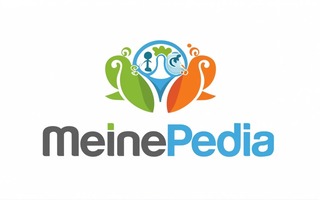Introduction Hypertension, commonly known as high blood pressure, is a silent yet pervasive health condition affecting millions of people worldwide. Often asymptomatic, hypertension poses a significant risk to cardiovascular health and can lead to severe complications if left unmanaged. Educating ourselves about hypertension, its causes, symptoms, and preventive measures, is crucial in reducing its impact
Introduction
Hypertension, commonly known as high blood pressure, is a silent yet pervasive health condition affecting millions of people worldwide. Often asymptomatic, hypertension poses a significant risk to cardiovascular health and can lead to severe complications if left unmanaged. Educating ourselves about hypertension, its causes, symptoms, and preventive measures, is crucial in reducing its impact and promoting overall well-being. This article delves into the world of hypertension, shedding light on its implications and empowering readers to take charge of their health.
Understanding Hypertension
Hypertension is a medical condition characterized by consistently elevated blood pressure levels above the normal range. Blood pressure is the force exerted by the blood against the walls of arteries as it circulates through the body. Two primary values measure blood pressure:
- Systolic Pressure: The higher number that represents the pressure in arteries when the heart contracts and pumps blood.
- Diastolic Pressure: The lower number that indicates the pressure in arteries when the heart is at rest between beats.
Normal blood pressure is typically around 120/80 mmHg. Hypertension is diagnosed when blood pressure consistently exceeds 130/80 mmHg.
The Silent Killer: Asymptomatic Nature of Hypertension
One of the most alarming aspects of hypertension is its asymptomatic nature. Many individuals may have high blood pressure for years without experiencing noticeable symptoms. This silent progression can lead to severe damage to blood vessels, the heart, kidneys, and other organs over time.
Risk Factors and Causes
Several factors contribute to the development of hypertension:
- Unhealthy Lifestyle: Poor diet, sedentary habits, excessive alcohol consumption, and tobacco use are significant risk factors.
- Family History: A family history of hypertension increases the likelihood of developing the condition.
- Age: As people age, the risk of hypertension rises, especially for individuals over 65.
- Gender and Ethnicity: Men are more prone to hypertension than women. Additionally, certain ethnic groups, such as African Americans, have a higher predisposition to the condition.
Complications of Hypertension
Uncontrolled hypertension can lead to serious complications, including:
- Cardiovascular Diseases: Hypertension is a significant risk factor for heart attacks, strokes, and heart failure.
- Kidney Damage: High blood pressure can impair kidney function over time, leading to chronic kidney disease.
- Vision Impairment: Untreated hypertension can cause damage to the blood vessels in the eyes, leading to vision problems.
- Cognitive Impairment: Hypertension has been linked to an increased risk of cognitive decline and dementia.
Preventive Measures and Management
The good news is that hypertension is largely preventable and manageable. Here are some strategies to maintain healthy blood pressure levels:
- Adopting a Healthy Lifestyle: Embrace a balanced diet rich in fruits, vegetables, whole grains, and lean proteins. Engage in regular physical activity and avoid excessive salt and sugar intake.
- Monitoring Blood Pressure: Regular blood pressure check-ups are essential, especially for individuals with a family history of hypertension or other risk factors.
- Medication and Treatment: If diagnosed with hypertension, following prescribed medications and treatment plans is vital for controlling blood pressure effectively.
- Stress Management: Adopt stress-reducing techniques such as meditation, yoga, or engaging in hobbies to manage stress levels.
Conclusion
Hypertension is a serious health condition that requires vigilance and proactive management. By understanding the risk factors, symptoms, and preventive measures, we can take charge of our health and reduce the impact of hypertension on our lives. Regular health check-ups, adopting a healthy lifestyle, and seeking medical advice when necessary are crucial steps in safeguarding our cardiovascular well-being. Empowered with knowledge, let us make informed choices and prioritize our health to lead fulfilling and healthy lives.


















